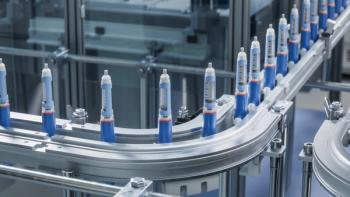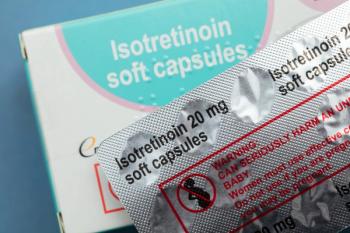
Therapeutic Arsenic Effective Against Glioblastoma
The addition of arsenic trioxide to standard therapy could triple glioblastoma survival.
Findings from a new study published by Molecular Cancer Research suggest that an ultra-low dose of arsenic could be a powerful therapy against cancer.
Arsenic is a naturally-occurring element that is present in the environment, water, and air, according to the World Health Organization. However, long-term exposure to inorganic arsenic can lead to poisoning and various types of cancer.
Arsenic trioxide has been used to fight acute promyelocytic leukemia (PL), a rare subtype of blood cancer. For the first time, the authors of the current study showed that the drug could be used against
"Our findings show that, for some patients, arsenic trioxide could be a powerful therapy that could extend the lives of certain glioblastoma patients by as much as 3 to 4 times the median expectation," said study author Harshil Dhruv, PhD.
The authors report that the median survival of patients with glioblastoma is 15 months, with minimal survival improvement over the past few decades.
The investigators screened 650 compounds and identified arsenic trioxide as a potential therapy for GBM. Previous studies showed that while a certain subtype was unresponsive, another subtype of GBM cells were responsive to the therapy.
"We were then able to identify these particular patients as having the same genomic signatures as those we had tentatively identified in our computer and laboratory screenings of potential therapies," Dr Dhruv said.
In the new clinical trial, the authors designed the study to match arsenic trioxide with patients with GBM who had a specific genomic signature. Patients also received standard treatment with temozolomide.
The investigators found that a clinical partner had already completed a preliminary clinical trial that showed arsenic trioxide disrupted the growth of GBM molecular signatures. They re-evaluated the trials and focused on mesenchymal (MES) and proneural (PN) glioma subtypes, whose genomic signatures varied.
"Arsenic trioxide was found to be the most potent compound in non-MES GBM cells. We found that PN GBM patients responded better to ATO (arsenic trioxide) than any other subtypes as demonstrated by longer overall and progression-free survival," said lead author Jonathan Bell, PhD.
The authors also discovered several advantages of adding arsenic trioxide to current treatments for GBM.
The researchers noted that the small molecule is able to cross the blood-brain barrier. Some cancer drugs are unable to cross this barrier, making them ineffective against GBM.
Another benefit is that the cost to manufacture the drug would be low since arsenic is naturally occurring, according to the study. This may provide patients with a stronger treatment against GBM without adding significant costs.
The investigators believe that this approach could provide certain patients with a more targeted therapy.
"Rather than treat all patients, we want to design a prospective clinical trial that we can enrich for those patients whose genomic signatures indicate they would be the best candidates for success," Dr Dhruv said. "This would be a biomarker-driven, precision-medicine clinical trial for glioblastoma—a way to match the right drug to the right patient."
Newsletter
Stay informed on drug updates, treatment guidelines, and pharmacy practice trends—subscribe to Pharmacy Times for weekly clinical insights.








































